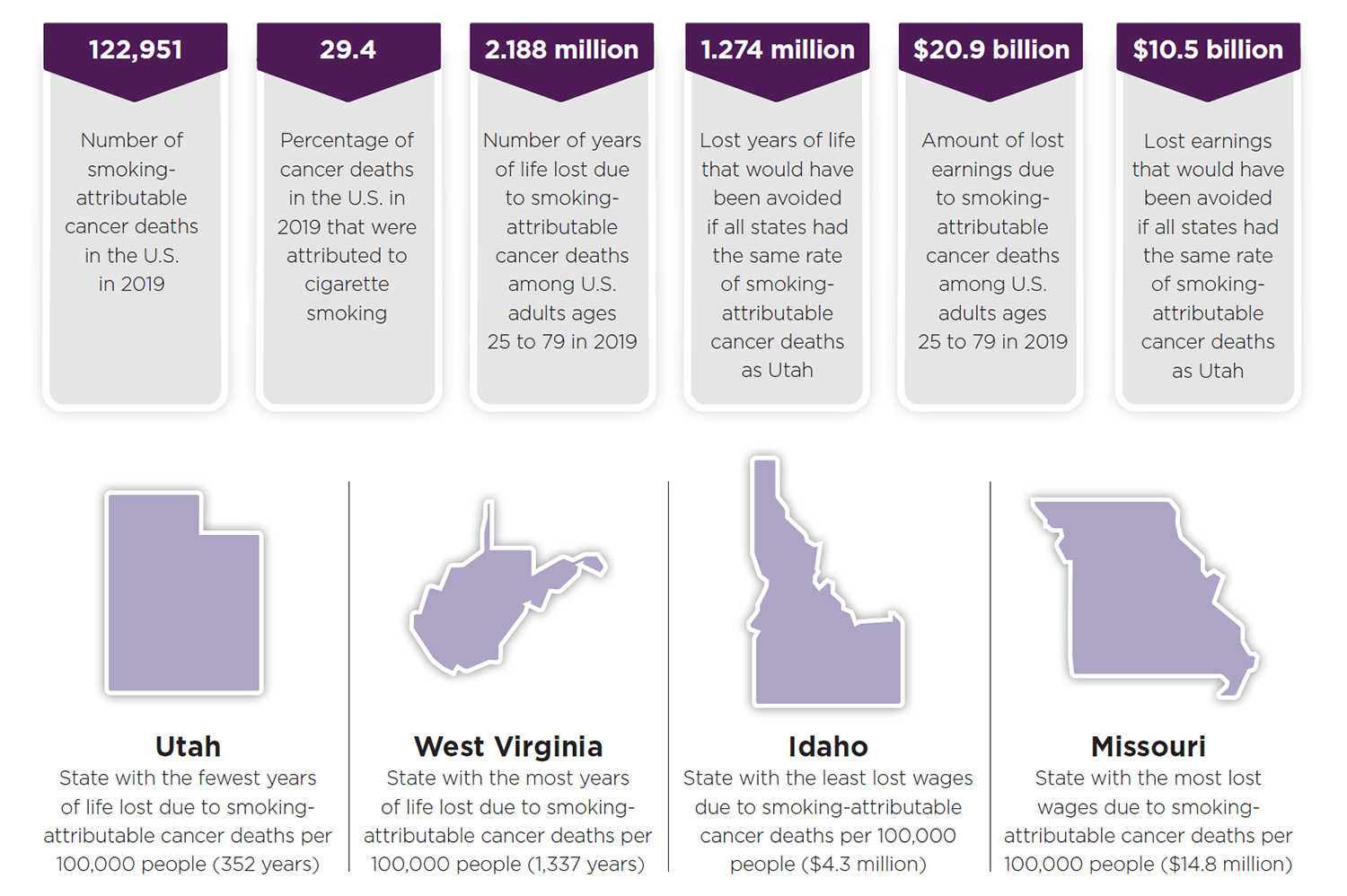CIGARETTE SMOKING is the leading cause of cancer-related deaths in the U.S., and those losses have far-reaching effects.
A study published Dec. 15, 2022, in the International Journal of Cancer estimated both the human and economic toll of these deaths. Using state-specific population data that included information on cancer deaths, wages and life expectancy, researchers projected that smoking-associated cancer deaths in the U.S. in 2019 led to the loss of more than 2 million years of life and nearly $21 billion in future earnings. The researchers factored in deaths from smoking-related cancers among people 25 to 79, analyzing cancers of the bladder, cervix, colon and rectum, esophagus, kidney, larynx, liver, lung, mouth and throat, pancreas, and stomach, as well as acute myeloid leukemia, a fast-growing cancer of the blood and bone marrow.
Utah recorded the fewest years of life lost, which researchers attributed to the state’s large population of Mormons, whose religion prohibits smoking. Researchers found those states with the highest rates of years of life lost tended to have higher smoking prevalence and weaker tobacco control policies, such as lower cigarette tax rates and a lack of statewide smoke-free policies in workplaces, restaurants and bars, compared with states with lower rates of years of life lost.

Sources: American Cancer Society, International Journal of Cancer
Cancer Today magazine is free to cancer patients, survivors and caregivers who live in the U.S. Subscribe here to receive four issues per year.





